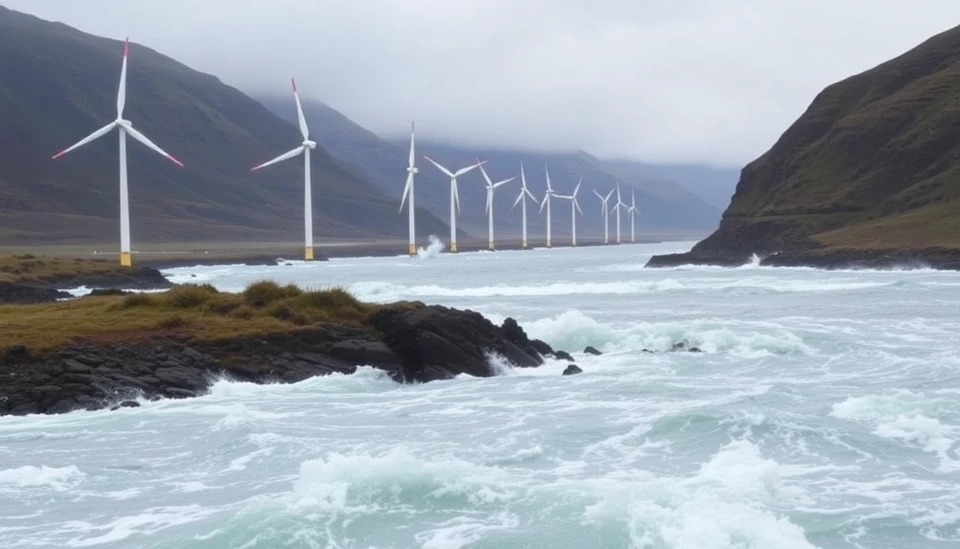
In a remarkable turn of events, Europe's wind energy production has experienced a significant boost, largely attributed to the lingering effects of Hurricane Kirk, which recently traversed the Atlantic Ocean. The storm, known for its potent winds and expansive reach, has diverted its energy into the North Atlantic, creating ideal conditions for wind farms across various European nations.
Data from the European wind energy sector revealed that on October 10, production from wind turbines soared to unprecedented levels, achieving a peak output that surpassed previous records. Countries such as Germany, the UK, and Denmark reported particularly high figures, showcasing how extreme weather can unexpectedly benefit renewable energy generation. This surge is essential for Europe, especially as the continent strives to meet its ambitious climate goals and reduce dependence on fossil fuels.
Experts indicate that the winds generated by the remnants of Hurricane Kirk were harnessed effectively by the extensive network of wind farms already in place. These farms have been pivotal in expanding Europe’s power capacity, allowing the continent to derive a more substantial percentage of its energy from renewable sources. With wind energy becoming one of the primary contributors to electricity supply, the industry continues to play a central role in the region's energy transition.
Interestingly, this phenomenon is not new. The unpredictable nature of weather patterns, particularly those arising from tropical storms, can create optimal conditions for wind energy generation. In the case of Hurricane Kirk, its post-tropical cyclone phase brought strong gusts and sustained winds, which were instrumental in enhancing the efficiency of wind turbines across Europe. As the storm system moved offshore, it was swiftly converted into a significant energy resource.
Industry analysts posit that recent advances in turbine technology and improved grid connections have allowed wind energy to become more resilient and responsive to changing weather patterns. The expansion of offshore wind farms, in particular, has been a game-changer, enabling countries like the UK to tap into powerful sea winds that were previously difficult to harness effectively.
As Europe faces escalating energy demands amid rising costs and the pressing consequences of climate change, the reliance on renewable sources like wind power is expected to grow further. This boom in wind generation, sparked by Hurricane Kirk, serves as a potent reminder of nature's dual ability to challenge and empower societies, providing a glimpse of a more sustainable energy future for the continent.
Looking ahead, further investment in wind infrastructure and technology remains critical to maintaining this momentum. Policymakers are urged to prioritize and support initiatives that will fortify energy security and resilience, ensuring that Europe can continue to thrive amidst the changing climate while achieving its sustainability objectives.
In summary, Hurricane Kirk, while impactful in many ways, has inadvertently highlighted the tremendous potential of wind energy in Europe, ushering in a new era of clean energy production that is both timely and crucial.
#RenewableEnergy #WindPower #HurricaneKirk #Sustainability #ClimateChange #EuropeEnergy #CleanEnergy #OffshoreWind
Author: Samuel Brooks




